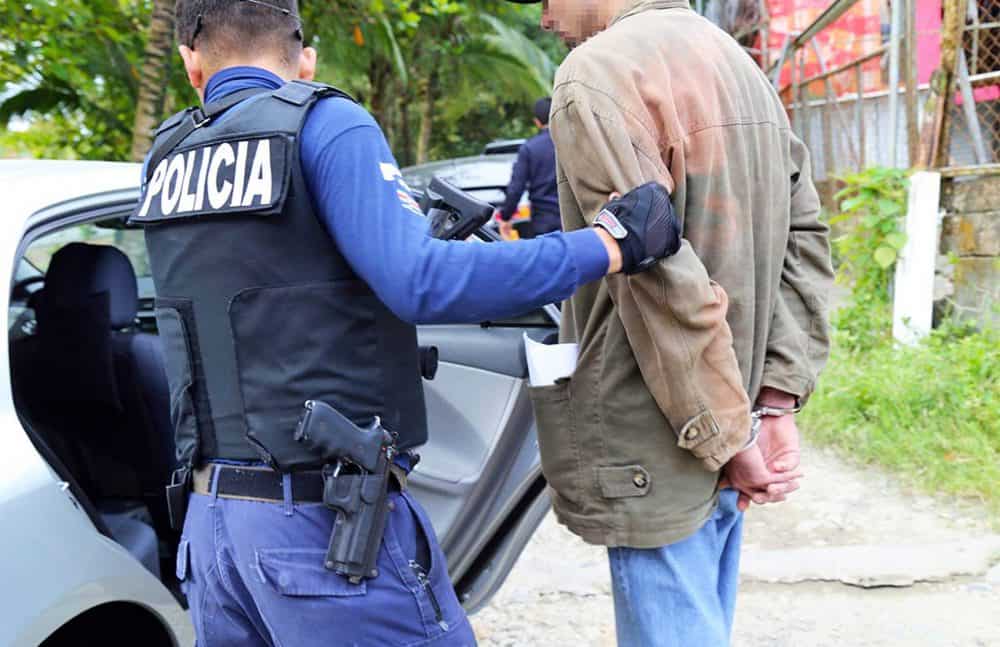Insecurity and crime have soared to unprecedented levels in Costa Rica, emerging as one of our country’s most pressing issues, according to a new survey by the Center for Research and Political Studies (CIEP) at the University of Costa Rica (UCR). Released this week, the findings highlight a growing public pessimism and a sharp decline in trust toward President Rodrigo Chaves’ administration as our country grapples with rising violence and safety concerns.
Crime and Insecurity Top Public Worries
The CIEP-UCR survey reveals that 43.7% of Costa Ricans now consider insecurity and crime their greatest concerns—a significant spike that marks a record high. This issue has led the survey’s list of public worries for several editions, but the latest data shows a notable peak, driven by high-profile incidents and a pervasive sense of unease. “We’re seeing increased pessimism tied to real threats to public safety,” said CIEP researcher Ana María Jurado. Other pressing issues include corruption (13.9%), poor governance (10.4%), and the cost of living (7.9%), reflecting a broader social crisis.
Costa Rica’s security challenges have intensified in recent years. InSight Crime reported a homicide rate of 16.6 per 100,000 in 2024—down slightly from 2023’s record 17.2 but still the second highest ever. Early 2025 OIJ data shows a rate of 13.6 through February, yet violent crime persists, fueled by drug trafficking. Since 2019, 88 tons of cocaine linked to Costa Rica have been seized in Europe, per Le Monde. Tourist hotspots like Puerto Viejo and Jacó report rising theft, prompting a U.S. Level 2 travel advisory in late 2024, while domestic violence cases jumped 145% since 2021, with 2,659 reported this year, per Tico Times.
Confidence in Government Plummets
Public faith in the Chaves administration’s ability to tackle these problems has cratered. The survey found 38.5% of respondents have no confidence in the government—a 12-point rise from November 2024’s 26.5%. Overall, 77% expressed little to no trust in the Executive Branch, while just 25.7% retain some or a lot of confidence. Chaves’ approval rating has also slipped, dropping from 63% in the prior survey to 54% now, amid frustration over security and an appreciating colón hurting tourism, per the National Chamber of Tourism.
The government’s “tough-on-crime” stance, including more police and arrests, has drawn mixed reactions. On X, some users note the homicide dip as progress, with one writing, “Crime’s down a bit—give Chaves credit.” Others disagree: “Pura Vida’s gone; streets aren’t safe, and they’re doing nothing.” Critics argue the approach fails to address root causes like poverty and organized crime’s hold on regions like Puntarenas.
Political Backlash and Future Implications
The survey’s electoral section shows strong public resistance to Chaves’ political moves. When asked about his encouraging voters to back specific candidates, 86% disagreed or strongly disagreed, versus 13% who approved. “This backlash signals distrust in leadership overreach,” said UCR political scientist Alejandro Molina. Combined with the crime crisis, it could further erode Chaves’ standing.
Our country’s peaceful image is at risk as tourism falters and safety fears grow. Without effective action, experts warn of lasting damage to the nation’s reputation. The CIEP survey, based on 1,000 respondents with a ±3.1% margin of error, aligns with a 2024 FLACSO study showing rising support for punitive measures, though our country’s lack of a military limits drastic shifts. For now, we must remain wary, awaiting solutions to a crisis that’s reshaping our country.






